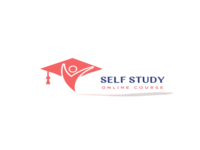10. Question the questions

In today’s lesson, you’ll learn how to ask different types of questions.
Warm up
- Is it important to ask questions?
- Why is it important to make questions correctly?
- Do you ask many questions? Did you as a child?
- What did you use to ask about in your early age, and what do you ask about now?
- How can you describe a person who asks many questions? Curious? Silly? Funny? Annoying? Inquisitive? Are you any of those types?
Rule the rules
Let’s start with the rules. Read the information from the table carefully.
| Question type | Forms | Examples |
|---|---|---|
| General or Yes/No questions | Auxiliary verb + subject + main verb + other information? | “Does he play the guitar?” “Yes, he does”. “Is it raining?” “No, it isn’t”. |
| Special or Wh-questions | Question word + auxiliary verb + subject + main verb + other information? | “Where will you stay?” “We will stay at his aunt’s.” ” Who were they talking to at noon yesterday?” “They were talking to their new client.” |
| Tag questions | Subject + verb + other information + tag (auxiliary verb + subject pronoun)? | “You are working today, aren’t you?” “Yes, I am”. “She wasn’t your teacher, was she?” “No, she wasn’t”. I am not wrong, am I? NB: “I am joining you, aren’t I?” “Yes, you are.” NB: Let’s watch TV, shall we? We have no time, do we? |
| Alternative questions | Auxiliary verb (or to be) + subject + main verb + object or object? | “Is it cold or warm outside?” “It is cold.” “Were you eating out or at home yesterday at 7 o’clock?” “We were eating out.” |
NB! Tag questions:
The adverbs never, rarely, seldom, hardly have a negative meaning. Even if we use them in a positive statement, they create a negative feeling. So we treat such sentences as negative. It means that the question tag is positive. For example:
– You never come on time, do you?
– She barely knew them, did she?
Alternative questions:
There are different ways we can answer alternative questions, but we do not answer “Yes”.
“Do you like football or tennis?”
Possible answers:
“I like football.” = “Football.”
“I like tennis.” = “Tennis.”
“I like both.” = “Both.”
“I don’t like either of them.” = “Neither.”
Not: “Yes.”

Common mistakes
“She plays the piano?” “Does she play the piano?”
“No, she does.” “No, she doesn’t.”
“What they were doing?” “What were they doing?”
“What it means?” “What does it mean?”
“He is tired, doesn’t he?” “He is tired, isn’t he?”
“Did you go there, didn’t you?” “You went there, didn’t you?”
“Do you work in a state or private company?” “Yes.”
“Do you work in a state or private company?” “I work in a state company.”
or “I work in a private company.”
Do you understand the rules?
New vocabulary – new expression
Learn some new words for this lesson.
Match the pictures with the words.

Now practice the words.

Practice 1
Do the tasks. Be attentive!
Practice 2
Now make questions based on the given words. Sometimes, you will need to add some missing words like auxiliaries, and sometimes, you will have to put the words in the correct order to complete the questions. After you think of a possible question, turn the card to see if you are right or wrong. Then answer the questions loudly. You might invent any answers – feel free as you are the author.
Practice 3
Make your own questions of different types and in different tenses. Ask about different jobs, everyday activities, future plans and past habits. To be more productive, use the words from today’s lesson, but first, find them in the square below.
